I returned to the United States last September with a sense of urgency. After being on the road for 13 months, I figured I had enough in the bank to last me a couple months, but I didn’t even want to wait that long to start working again. As I discussed last week, I started my job search before I even returned. However, my efforts on the road paled in comparison to the nearly full-time effort I put into it once I was back home.
Within two weeks of coming home, I had an offer to consult on a temporary basis and within a month, I had an offer (albeit one I did not ultimately accept). By the time Christmas rolled around, I had three more offers and was solidly on my way to becoming gainfully employed again.
How can you make this happen for you? Everyone’s job search will be different, but here is the advice I would give on how to find a job after a career break based on what worked for me after I returned from traveling for a year:
Ask for help – lots of it.
As soon as I got back, I sent a variety of emails to almost everyone I knew about my job search. I customized them a bit based on where people lived and what they did, but I basically outlined what I was looking for and just asked for any contacts in the relevant fields. The response was incredible! I had more potential contacts than I knew what to do with! While none directly led to a full-time job, I got a better feel for the fields I was considering, learned about organizations in which I could have an interest in the future, discovered one great volunteer opportunity and found a couple leads for freelance social media consulting.
Be realistic about your salary expectations.
You may have downsized quite a bit as you prepared to leave on your career break, so chances are you might be able to get away with making a bit less than you did in the past. Do the math and figure out what your absolute minimum is. While you don’t want to undervalue yourself, lowering your salary expectations can open up additional possibilities. For me, while I knew I could afford to go lower than what I made previously, I also knew I had a bottom limit due to still having student loans and a mortgage to pay. I didn’t waste my time pursuing jobs that I knew would pay too low.
If you are relocating, check out Craigslist for apartment listings and look at Salary.com to compare cost of living between your old city and your new home. I was initially excited to have a shot at a job in San Francisco, but when I realized that the salary it offered would barely allow me to rent a tiny studio apartment in a crappy neighborhood, I recoiled. Luckily, I figured that out before accepting the job and moving cross-country for what would have been a struggle just to make ends meet.
Keep an open, positive mind.
Approach your job search as a learning experience – one that could even be enjoyable! I went into every networking meeting and every interview with an open mind, figuring that at worst, I would discover what didn’t interest me or what I didn’t want to do. It was through talking to a lot of people that I narrowed my initial search from three general areas to two more specific ones. I completely eliminated the travel industry as an option, even though that was what I thought I wanted to do when I left on my trip. But after talking to several people about the realities of the industry, I felt comfortable acknowledging it wasn’t for me.
Customize everything.
You need to tailor your resume and cover letter to each position for which you apply. Go through the required job qualifications and make sure you demonstrate that you meet each one. Use the same language in the job posting. Don’t assume the person reviewing your resume will make the connection that the work you did in one area qualifies you to do another type of work – show them.
And it isn’t just what information you include – it’s how you include it.
I started my resume with a section for relevant experience, followed by a section for other experience. When I applied for jobs in alumni relations and fundraising (my old field), I listed my last position first. After all, it was the most relevant. But when I applied for jobs in the travel industry, I started off with my overseas experience, including my time volunteering with the national tourism board of Armenia, my position with Meet, Plan, Go! and my travel blog. I took it even further with my cover letter, specifically customizing everything to the particular job for which I was applying.
Own your travel experience.
Don’t shy away from your experience. Highlight it on your resume – you need to explain that gap anyway, use the opportunity to brag about the skills you developed. Be ready to explain with confidence why you left when you did. Be prepared to articulate what you learned and how the experience will make you a better employee. I didn’t encounter a single occasion where my travel was addressed as a negative – my eventual employer did express concerns about my “restlessness” – but, hey, I got the job anyway!
Don’t be afraid to turn down an offer if it’s not the right fit.
I turned down one offer and eliminated myself as a finalist for another position because they didn’t feel right. It was a little scary and I felt like I was being a little overconfident in doing so, but I had other interviews lined up at the time and my bank account balance wasn’t getting too low. Most importantly, neither job was a good fit. The salary and benefits for both were so low that I would have continued to look for something else and that wouldn’t have been fair to anyone. And while both initially sounded really interesting to me, as I delved deeper, I realized they just weren’t right for me.
Follow up.
Don’t be afraid to follow up if you haven’t heard back about an application in a few weeks. If you get an offer or are a finalist for a position, you can use that as a reason to follow up on another job – especially if the other job is one you would prefer. I did this on several occasions and while the first couple times resulted in being invited for interviews, the last two times resulted in job offers!
Be patient.
Above all, you need to be patient. The job search process can be grueling and take much longer than you would like – even if you are having success in landing interviews. I interviewed for one job a full three months after I initially applied. While I didn’t get that job, two weeks later, they reached out to me to apply for another position that opened up. I applied for another job in mid-October and was returning for a second round of interviews in early December. Even the job I ended up taking (which seemed like a sure thing because I knew my now-boss from a previous job) took almost two months to move from initial application to offer. As hard as it may be at times, try to have faith that the right job will come along at the right time. Things will work out, even if it’s not how you expected.
This is Part 3 of a 3-part series. Please check out How to Find a Job After You Quit Your Job to Travel: Before You Go and How to Find a Job After You Quit Your Job to Travel: On the Road for more tips!
